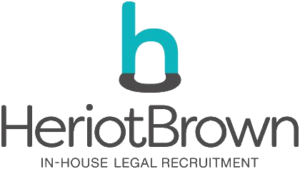In a recent enlightening session, I engaged in a thought-provoking conversation with Lisa-Marie Sikand, an executive coach and business strategist. The discussion revolved around Lisa-Marie’s personal experience with burnout and the growing significance of well-being in modern leadership. As a former Chief Marketing Officer, Lisa-Marie is on a mission to champion the well-being revolution, and she has developed the innovative “Get Out Of Your Own Way®” framework to empower individuals to lead well and live better. Here, I summarise the key talking points from this insightful event.
· Self-Care for Leaders: The event underscored the idea that the best leaders prioritise self-care and well-being. To lead effectively, one must first take care of themselves.
· Turning Intentions into Actions: Participants discussed the challenge of turning good intentions into tangible actions. It’s not just about talking the talk but also walking the walk.
· Actions Speak Louder: Emphasising that actions make a difference, not just words, the event highlighted the importance of authenticity in leadership.
· Supporting Junior Lawyers: Younger lawyers often feel the pressure of being constantly under assessment. Creating a supportive environment for them is crucial.
· Balancing Doing and Being: Managing the balance between “doing” tasks and embracing one’s humanity is essential for sustainable leadership.
· Allyship and Advocacy: Being an ally and ambassador for well-being initiatives within organisations can drive positive change.
· Generational Tensions: The conversation delved into tensions between older and younger generations in the workplace, with the younger generation challenging the status quo.
· Effective Messaging: Even with the right messaging, ensuring it is perceived correctly and adapted appropriately can be a challenge.
· Individualised Well-Being: Recognising that what constitutes “good” well-being varies from person to person, attendees stressed the need for a personalised approach.
· Self-Sustainability: Self-sustainability empowers individuals to choose their path forward, promoting resilience and adaptability.
· Hyper-Productivity Hazards: In professions like law, hyper-productivity can lead to toxic work environments, highlighting the importance of well-being.
· Signs of Burnout: Attendees learned to identify signs of burnout, which include a lack of perspective, emptiness, irritability, physical pains/aches, and disrupted sleep.
· Thrive for Better Performance: A Deloitte study revealed that individuals who thrive outperform those who do not, emphasising the financial benefits of fostering well-being.
· Self-Advocacy: Advocating for oneself requires self-awareness and the willingness to seek feedback from others.
· Balanced Perspective: It’s essential to consider your perspective, the perspective of the person you’re communicating with, and the business perspective when making decisions.
· Communication is Key: Effective communication is crucial in fostering a healthy work environment and supporting well-being initiatives.
· Psychological Safety: Creating an environment that supports new ideas and encourages open dialogue is vital for psychological safety in the workplace.
· Transparent Planning: When challenging work periods are ahead, communicating with your team or manager about what to expect and what support is needed can prevent burnout.
· Avoid Assumptions: Be aware that not everyone shares the same understanding or background, and avoid making assumptions about others’ perspectives.
· Small Acts of Kindness: Small gestures of recognition and appreciation can have a significant impact on team morale and well-being.
· Outcomes Over Presenteeism: The event concluded by highlighting that long hours do not necessarily equate to the best work. Focusing on outcomes rather than mere presence is key.
In a rapidly evolving professional landscape, these valuable lessons remind us that well-being is not just a buzzword but a fundamental tool for sustainable self-leadership and modern living. By fostering a culture of well-being, organisations can empower their leaders to thrive and drive positive change in the workplace.
This event was run as part of the Lessons I Learned in Law roundtable series from the Heriot Brown In-House Community. For more information, contact [email protected]


